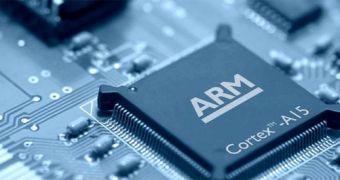ARM is a British CPU design company that develops and licenses the well-known ARM architecture. Lately, the performance of ARM-based CPUs has become comparable with low-power x86 counterparts, and the company reportedly foresees that they'd own over 20% of the mobile PC market by 2015.
ARM is currently the king of phone processor market and, generally, of the mobile CPU applications.
The high sales of smartphones from the last decade have been tempting even for Intel, and the American / Israeli CPU giant made a serious attempt at the smartphone market this year, attempt that ended up in shame.
While we don’t see Intel achieving a 10 percent mobile phone processor market in the near future, ARM’s new CEO, Warren East, is keen on contradicting us, as he believes Intel would actually get to enjoy those 10 percent of the mobile phone market three years from now.
On the other hand, Mr. East believes that ARM-based CPUs would represent around a fifth of the mobile PC market.
The CEO’s expectancy is quite justified, as a quad-core ARM Cortex A15 CPU working at 2.5 GHz would most likely be quite competitive with Intel’s low-performance CPUs like the Celerons, and it would probably trounce any Atom counterpart.
One main aspect is the fact that an ARM laptop CPU coupled with a normal laptop battery would probably result in a maximum battery life of about 15 hours, or 10 hours of web browsing.
"If you look at a lot of consumer PCs, people just want to run an Internet browser, an email package, some Office applications and Adobe Photoshop or something like that, and not much else.Therefore, we can put ARM processors into the heart of PCs to target a lot of the use requirements," Warren East also stated.
We’d like to see Samsung’s Exynos 5 series implementations before we go any further with suppositions, but we’re confident in ARM’s performance abilities.
Another thing to keep in mind is the fact that the competition – Intel and AMD – isn't sitting still.

 14 DAY TRIAL //
14 DAY TRIAL //